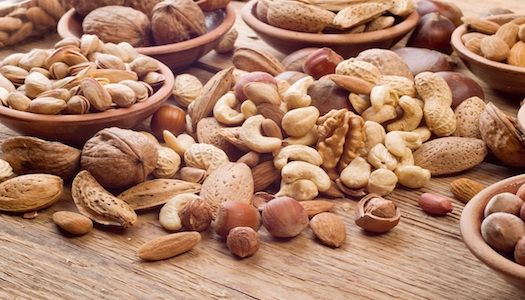Article
Boiled Peanut Oral Immunotherapy Shows Pediatric Allergy Desensitization
Author(s):
A group of pediatric patients were able to sustain desensitization 4 weeks after stopping the daily oral immunotherapy.

Exposure to boiled peanut protein may be an improved measure for oral immunotherapy in pediatric patients, according to a new study.
In results from the phase 2b/3 BOPI study, presented at the American Academy of Allergy, Asthma & Immunology (AAAAI) 2019 Annual Meeting in San Francisco, CA, investigators reported that three-fourths of children with peanut allergy achieved desensitization of >1.4 mg peanut protein after being administered up-dosed boiled peanut oral immunotherapy for about 6 months.
The team, led by Paul J. Turner, PhD, believe treating patients with a modified, hypoallergenic product could lead to improved desensitization.
Investigators randomized children with peanut allergy—as confirmed from a previous double-blind, placebo-controlled food challenge—2:1 to receive either oral immunotherapy with updosing boiled peanut (n= 32) or control therapy (allergen avoidance [n= 15]). Patients administered boiled peanut received maintenance roasted peanut immunotherapy after about 6 months.
The patient population were between the ages of 8 and 17 years old, with 43% female.
Patients then underwent a repeat double-blind, placebo-controlled food challenge at 12 months in order for investigators to assess the treatment response. Afterward, oral immunotherapy was stopped, so sustained unresponsiveness could be assessed at 4 weeks.
Before the trial’s end, 8 patients treated with boiled peanut and 1 in the control group had withdrawn—4 having been due to treatment-related adverse events. The median cumulative eliciting dose prior to oral immunotherapy was 143 mg protein (interquartile range [IQR]: 44-443 mg). Of the 32 treated patients, 24 (75%) achieved >1.4 g peanut protein—the trial’s primary outcome (P < .0001). Another 14 patients were able to tolerate >4.4 g peanut protein, and 13 of 24 patients (54%) to be assessed 4 weeks following treatment’s end had reported sustained unresponsiveness.
The control group patients reported no significant change in allergen threshold (P > .05). Though investigators noted patients administered oral immunotherapy had a favorable safety profile—including just less than 2% of doses being associated with gastrointestinal symptoms—there were also 17 anaphylactic episodes to have been reported in 9 patients during at-home dosing.
Putting the metrics of sustained immunotherapy into more everyday language, first author Nandinee Patel, MD, of Imperial College London, noted in a statement that patients who reached 1 year of boiled peanut immunotherapy were able to tolerate at least 6-8 peanuts at a time. The patients who demonstrated sustained unresponsiveness after 4 weeks were still able to tolerate at least 2 peanuts.
There are currently no immunotherapies marketed for the treatment of food allergies, though investigational therapies AR-101 (Aimmune) and Viaskin Peanut are seeking US Food and Drug Administration (FDA) indication for peanut allergy desensitization.
Turner and colleagues’ findings could contribute to the pursuit of a varied market of food allergy immunotherapies.
“We’re hopeful that this type of immunotherapy will continue to demonstrate positive results, which will hopefully open doors to safer, more affordable immunotherapy options for patients with peanut allergy,” Turner said.
The study, “Successful Desensitisation And Sustained Unresponsiveness Using Modified Peanut: Results From The BOPI Study,” was published online in The Journal of Allergy and Clinical Immunology.





